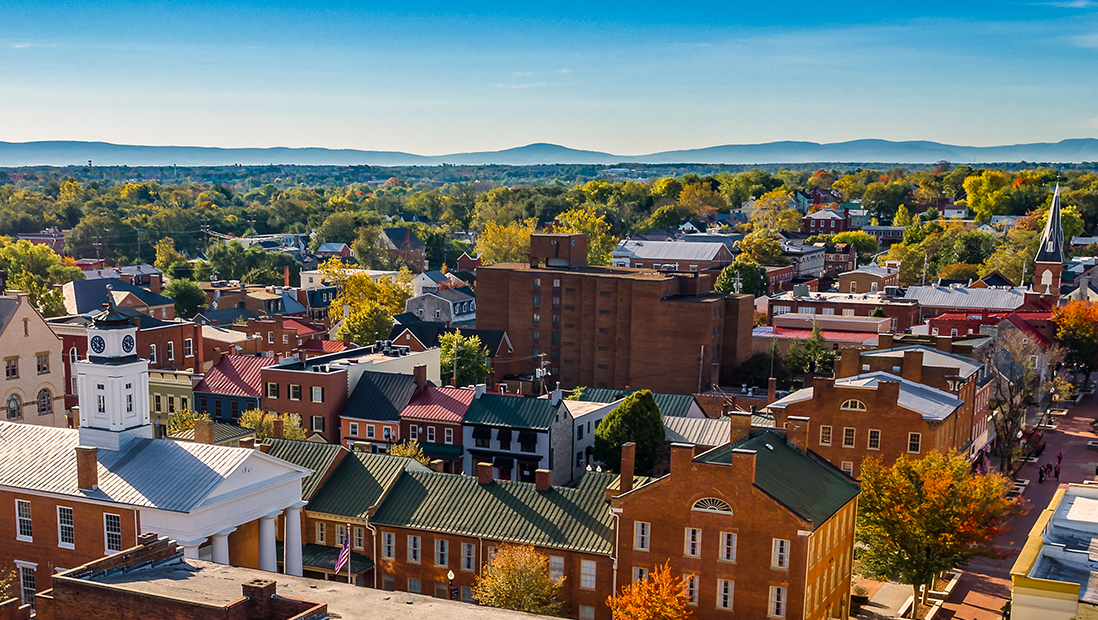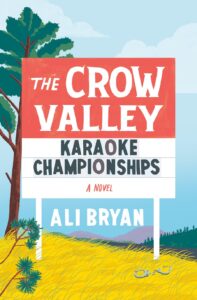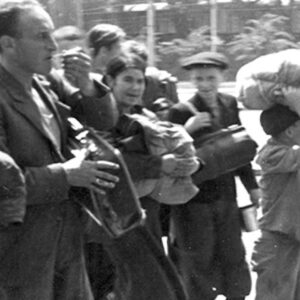
Ali Bryan on Finding Community, Authenticity, and Acceptance in a Small Town
“Empathy, after all, comes from paying attention. It’s seeing someone exactly as they are and accepting them.”
I moved to a small town when I was in grade 11. My parents, in their mid-forties, decided to accelerate their retirement plans and bought a sprawling Victorian inn on the edge of a marsh in a town that was equal parts blue-collar and post-secondary. It was monster trucks and poetry, dirt bikes and art. My parents had a romanticized idea of innkeeping. My dad, a Bob Newhart wannabe, thought the experience would be, in his own words: majestic. And why not?
Her Majesty, Queen Elizabeth, had stayed there, as did a host of other famous Canadian and global intellectuals, icons and artists, from Pierre Trudeau and Sylvia Tyson to Mr. Dress-up (a former understudy of Mr. Rogers), Archbishop Desmond Tutu, Gordon Pinsent, Stephen Lewis, Hockey Night in Canada’s Ron MacLean, and P.J. O’Rourke (P.J. even helped me finish a political science assignment). My mom, on the other hand, when thinking of running an inn, imagined Giverny, Michelin stars and high tea. What they got was the breakfast shift, staff members without teeth, and after six years: a divorce.
I got a lesson in authenticity.
It’s taken me a long time to see it that way. I’ve spent most of my life resenting that move. Its impact has come up more times in my adult life than I expected. As my husband and I have toyed with moving home to Halifax from our current city of Calgary several times over the last decade, I’ve been quick to do the math. No matter the timing, one of the kids always seemed to be going into grade eleven. We never moved.
My novel, The Crow Valley Karaoke Championships, which takes place in a fictitious but very real Canadian mountain town, explores the importance of community. A year after wildfires swept through the town, killing the local hero, Crow Valley holds a high stakes karaoke competition to commemorate his death. Chaos ensues.
A prisoner escapes from the local correctional facility, a bear is on the loose and everyone’s got a problem, whether with alcohol, their spouse, their car, their own mediocrity. Everyone knows everyone else’s business. Val wants a drink, Roxanne carries her dead husband’s ashes in a Thermos, Marcel wants out of prison, Brett wants to be anybody but himself, and Molly wants to die. They are all ordinary people trying to reconcile the life they expected to live with the life they actually have.
Having nowhere to hide made the difference between surviving my family’s move or perishing from it.
The idea that everyone in a small town knows your business is often seen as a bad thing. In a small town, there’s no anonymity and nowhere to hide. You know which couple had sex in the high school weight room. You know whose father hit him. You know who was pregnant, who was in therapy, and who liked fishnets. But maybe that’s a good thing. For me, having nowhere to hide made the difference between surviving my family’s move or perishing from it. Whether it’s a matter of circumstance or choice, you kind of just end up being who you are and people, no matter what they think, eventually accept you and life goes on.
At the time of my family’s move I was a moody, fifteen-year-old. It was 1994. I was into Sub Pop, skateboarding, and self-hate. The first day I walked into my new high school was like something out of a movie. People stopped talking mid-sentence and stared. Their gaze followed me until I was safely inside the guidance counsellor’s office. But they were curious, not cruel.
When my parents told the school I was having a hard time with the transition, my teachers rallied around me. That’s what people in small towns do. They rally. They activate. They: community. They paid attention and worked with what they had: me. Without changing a thing about who I was, I thrived both academically and socially. I did the bonus questions in math, wrote for the school paper and completed an assignment (this time without P.J. O’Rourke’s help) on non-conformity through the lens of punk music. My teacher celebrated it.
Soon, I made friends. It would be too late to become one of the popular girls, but standing out as the only visible skater girl and not feeling like I had to change anything about who I was, was also exactly how I fit in. When there’s no place to hide, you be yourself. I had friends whose parents were academics. I had friends whose parents never finished high school. I had friends who smoked, friends who snowboarded, friends who drove around in trucks with flame decals and blasted I Like To Move It at 3 a.m. I joined the local air cadet squadron. I played on the school soccer team. I hitchhiked and hung out under covered bridges. I had friends who were hungry, and friends who had everything. They were all real and I loved them equally.
This small town taught me to be myself. It taught me about self-compassion, and how to live without shame. Most importantly it taught me about empathy. Empathy, after all, comes from paying attention. It’s seeing someone exactly as they are and accepting them. It’s working with what you have, with who’s in front of you. Including yourself. And in turn it taught me how to write with empathy.
An agent once rejected one of my earlier manuscripts because he deemed the characters were of a “Walmart variety.” I’d like to think they were simply of the human variety. Ordinary people. Like those in my small town, and those in my book. I am Crow Valley. We all are.
__________________________________

The Crow Valley Karaoke Championships by Ali Bryan is available from Henry Holt and Co., an imprint of Macmillan.
Ali Bryan
Ali Bryan is a writer based in Calgary, Alberta. Her first novel, Roost, won a Georges Bugnet Award for Fiction and was an official selection of One Book Nova Scotia. Her second novel, The Figgs, was released in 2018 and was a finalist for the Stephen Leacock Memorial Medal for Humour. She won the 2020 Howard O’Hagan Award for Short Story. She is a Lieutenant Governor of Alberta Arts Awards Emerging Artist recipient. Her debut YA novel, The Hill, was released in March 2021 from Dottir Press and was long-listed for the 2021 Wilbur Smith Adventure Writing Prize.


















